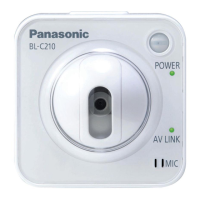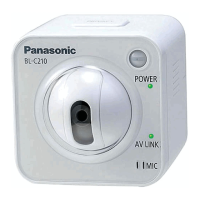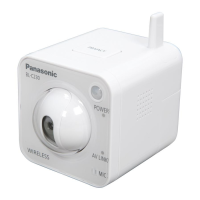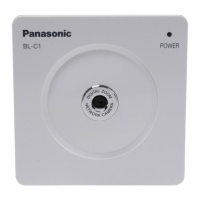Enabling [Auto Port Forwarding] using the [UPnP] page
1. Click the [Setup] tab.
2. On the left side of the screen under [Basic], click [UPnP].
3. Under [Auto Port Forwarding], select [Enable].
4. Click [Save].
• When setup is complete, [Success!] is displayed.
5. Confirm that port forwarding was configured correctly (see Page 102).
Note
• If auto port forwarding is enabled or disabled on this page, it is also enabled or disabled on the
[Internet] tab.
• Screen content varies by model number.
Confirming that UPnP™ port forwarding is configured correctly
To confirm that the UPnP™ port forwarding has been successfully configured, follow the procedure below.
1. Click the [Maintenance] tab.
2. On the left side of the screen, click [Status].
3. Under [UPnP], confirm that the status is [Enabled].
• If [Enabled] is not displayed, refer to the UPnP™ related items in 1.3 Camera Setup Issues and
1.5 Camera Access Issues in the Troubleshooting Guide.
Configuring port forwarding without using UPnP™
If your router does not support UPnP™, you need to configure the router’s port forwarding feature manually.
1. Click the [Setup] tab.
2. On the left side of the screen under [Basic], click [Network (IPv4)].
3. Under [Connection Mode], click [Static].
4. Make a note of the IP address and port number displayed here. You will need to know these settings when
configuring the router for port forwarding.
5. Click [Save].
6. Click [Restart].
102 Operating Instructions
4.1 Configuring Port Forwarding

